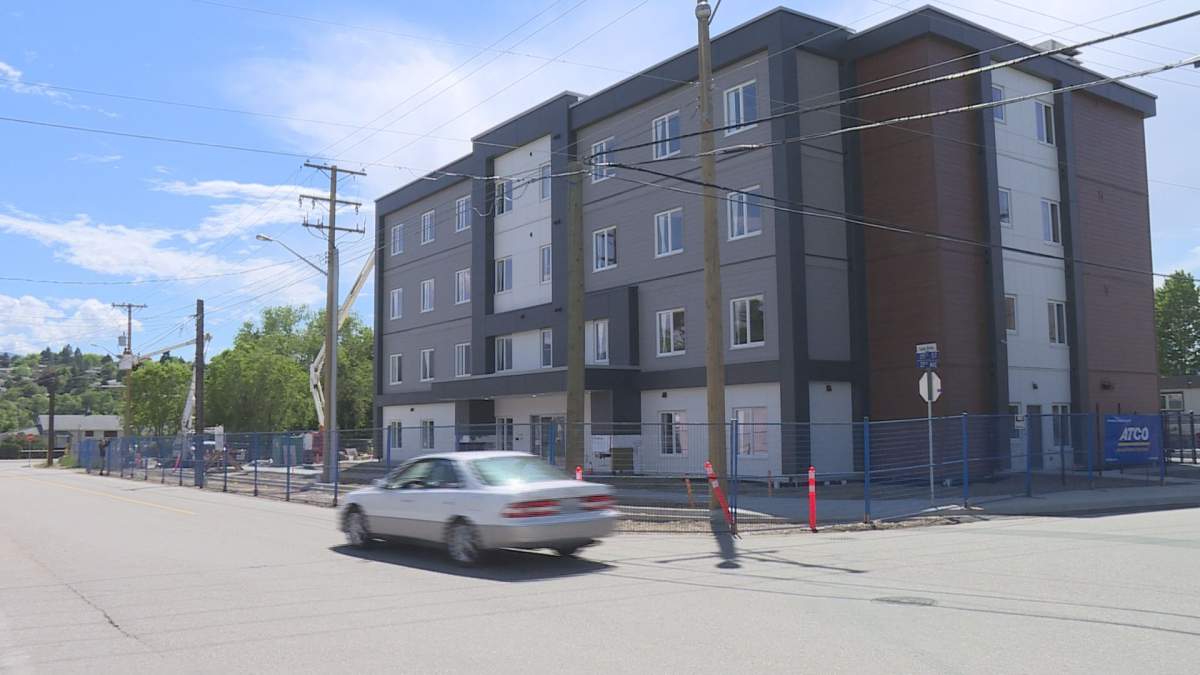Residents of Grand Forks, B.C., united in the face of catastrophe during last spring’s devastating floods, but some say the community now stands divided over how to deal with homelessness.

Debates are erupting between neighbourhoods as the City of Grand Forks proposes a new location for a controversial BC Housing supportive housing project.
The 34-unit, four-storey building was initially slated to be built at 7382 Second Street, but the city received significant opposition from the area’s business community.
“The downtown core, primarily the downtown business association and business people downtown, were pushing back hard,” said Grand Forks Mayor Brian Taylor on Tuesday.
In response, city council proposed to relocate the project to 70th Avenue. On May 21, council held a first and second reading of the rezoning bylaw, which, if passed after a public hearing, would permit the project to proceed on city-owned land.
WATCH (Sept. 28, 2018): Grand Forks residents face growing financial anxiety

However, Taylor said the city has received “massive opposition” from neighbours of the new proposed location south of Dick Bartlett Park.

Get daily National news
“Councils are really strapped with finding any place that would satisfy everyone’s needs, and the fear out there is rampant,” he said.
“People think that BC Housing is going to put all of the drug addicts in it and they’re going to bring their shopping carts and be involved in stealing and drug dealing and everything else that is the fear and the stereotype that they are putting on this.”
Concerned citizen Dianna Darling founded a grassroots group called Citizens for a Better Grand Forks. Members are organizing in opposition to both of the proposed locations.
“Our concerns are lack of transparency, lack of appropriate information being given to us, misleading information being given to us,” Darling said over the phone on Tuesday.
She questions if the building will house non-residents.
“We don’t think either area is appropriate for what the supportive housing is going to offer. In Grand Forks, we have been told we have roughly 10 to 15 hard-to-house individuals.”
“While many residents and businesses are still struggling to find the resources to get back on their feet, we are being inundated with provincially funded social support services that do little or nothing to help those that are suffering from last year’s flood but instead provide an essentially rules-free environment for transients, drug addicts and prolific thieves,” resident Glynis Andersson wrote in an email to Global News.
WATCH (Sept. 13, 2018): Grand Forks residents react to flood buyout plan

“Two neighbourhoods in our community are fighting against one another to come up with the most compelling arguments against having BC Housing’s low-barrier housing complex built in their neighbourhood. We are beginning to see acts of civil disobedience, vigilantism and even crimes of retaliation.”
Resident Hank Randrup is even calling for a moratorium on all social support services in the community run by the province until people have recovered from the flood, a need for social housing has been proven and a community plan has been developed.
“Our council’s focus should be on the recovery and infrastructure rebuild of Grand Forks, but instead, (councillors) have had to concentrate their attention to the supportive housing issue,” Randrup wrote in a letter addressed to B.C. Housing Minister Selina Robinson.
Taylor said he doesn’t support a housing moratorium.
“My response is really negative to that. The need is here now, and we really need to address it so I do not personally support a moratorium,” he said.
He said some residents living in precarious housing situations due to the floods may be eligible to live in the supportive housing building.
“We have a lot of people who are inappropriately housed, partly after the flood. We still have people who are hooked up to their neighbours’ power, living in an old motorhome that made it through the winter with our help, but that is not long term, and they would be eligible for this housing,” he said.
There will be a public hearing about the proposed zoning bylaw change on Wednesday, June 5.








Comments